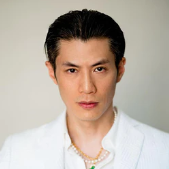Qi is a vital energy force found in all living beings. Qi energy and traditional Chinese medicine (TCM) date back thousands of years. In prehistoric times, there were four main systems of healing which included:
- Traditional Chinese Medicine (TCM)
- Ayurveda or Indian System of Medicine
- Ancient Greek Medicine
- Egyptian Medicine
Traditional Chinese medicine has been recorded since 200 BCE. It describes the belief that everything holds yin (negative) energy and yang (positive) energy. Yin means “female” or “moon” and this energy represents femininity, passivity, darkness, and the earth. Meanwhile, its counterpart, Yang, translates to “male” or “sun” and represents masculinity, activity, light, and the heavens.
These two opposing energies work together in perfect balance and harmony. Too much yin energy or too much yang energy causes an imbalance in a person’s health, society, and the entire universe.
Traditional Chinese medicine also believes that there is a life force or energy called “Qi”(chi). In order for yin and yang to be balanced, you also need free-flowing, balanced Qi.
QI COIL
Try Qi Healing
What Is Qi (Chi)?
Qi (pronounced as “chi” ) energy promotes the proper balance of yin and yang. The word “Qi” means it’s a vital force of life energy in the human body. Qi is a fundamental concept of TCM theory, which believes that Qi energy flows throughout the human body via channels known as meridians. Qi is thought to be influenced by five elements in a person’s life:
- lifestyle
- diet
- environment
- emotions
- even weather patterns
When Qi flows freely, the body is in good health, but when Qi becomes blocked or imbalanced, it can lead to illness and poor health.
History
Qi, the life force energy, has been a part of Chinese culture for over 2,500 years. The first documented script that mentioned Qi energy dates back to 200 BCE.
The concept of Qi was first introduced by a legendary Chinese philosopher, Huangdi, also known as the Yellow Emperor. Huangdi is considered to be the founder of TCM and is credited with inventing the concept of Qi.
Centuries ago, oriental medicine described theories, practices, diagnoses, and treatments for herbal medicine and acupuncture. These classical Chinese texts were refined over many centuries, and TCM continued to evolve as it spread throughout Asia.
Although Chinese immigrants had been practicing TCM in the United States since the mid-19th century, its existence was largely unknown to most Americans until 1971. That year, New York press reporter James Reston, who was in China covering former President Nixon’s trip, had to have an emergency appendix operation. After the operation, he received acupuncture for pain relief, and his stories about this experience with TCM fascinated the public. This led to increased interest in TCM and alternative medicine in the West, and today TCM has become more mainstream and is practiced all over the world.
In addition to acupuncture and herbal medicine, TCM includes various other practices such as massage, meditation, and dietary therapies, all of which are aimed at maintaining the flow of Qi and promoting overall health and wellness. Despite some controversy and skepticism, TCM continues to be a popular and effective alternative to Western medicine for many people around the globe.
What is a Qi Deficiency?
A Qi deficiency occurs when there is not enough Qi flowing through the body. This can be caused by various factors, including a poor diet, lack of exercise, emotional stress, and illness. If left untreated, symptoms of a Qi imbalance can further develop into more serious health problems.
In TCM, a Qi deficiency is typically diagnosed through a combination of symptoms, pulse diagnosis, and observation of the tongue. Once diagnosed, the practitioner will develop a personalized treatment plan that may include acupuncture, herbal remedies, dietary changes, and lifestyle modifications to restore and heal Qi in the body. It is essential to treat a Qi deficit promptly to prevent further health complications and promote overall good health.
While lacking Qi energy is bad for your health, having excess Qi can also negatively impact your life. People with excess Qi tend to be tense and irritable. Therefore, it’s important to find the proper balance of Qi.
Symptoms of a Qi Deficiency
A Qi deficiency occurs when there is an imbalance or insufficient flow of Qi, which is a vital energy source. When Qi is deficient, a person may experience a variety of physical and emotional symptoms.
Physical Symptoms of Qi Deficiency:
- fatigue
- weakness
- frequent illness or infections
- slow healing
- shortness of breath
- cold hands and feet
- weakened immune system
- slow digestion
Emotional Symptoms of Qi Deficiency:
- anxiety
- depression
- mood swings
- lack of mental clarity
- reduced focus
If a Qi deficiency is left untreated, it can lead to more severe health problems. A weak immune system can make a person more susceptible to infections and diseases, and poor digestion can lead to malnourishment and further health complications. A chronic Qi deficit can also cause long-term fatigue and weakness, making it difficult to carry out daily activities.
How to Treat a Qi Deficiency

A Qi shortage is a common health condition that occurs when there is an imbalance or insufficient flow of Qi. TCM practitioners use various methods to diagnose a Qi deficit and develop a treatment plan.
A Qi deficiency can cause a variety of physical and emotional symptoms, such as fatigue, weakness, frequent illnesses or infections, anxiety, depression, and a lack of mental clarity.
Fortunately, a Qi insufficiency can be treated through a combination of TCM therapies, such as:
- acupuncture
- herbal remedies
- dietary changes
- lifestyle modifications
Acupuncture
Acupuncture is one of the most well-known TCM therapies, and it involves inserting thin needles into specific points along the body’s Qi points. This is believed to stimulate the flow of Qi, promoting balance and restoring the body’s natural healing abilities.
To treat a Qi deficiency, a TCM practitioner will select specific acupuncture points based on the individual’s symptoms, pulse diagnosis, and observation of the tongue. Needles are then inserted into these points, and the practitioner may stimulate the needles to enhance the flow of Qi.
Research has shown that acupuncture can be an effective treatment for a variety of health conditions. A review of studies found that acupuncture can increase energy levels, reduce fatigue, and improve the person’s overall quality of life.
Herbal Remedies
Herbal remedies are a cornerstone of TCM and can be used to treat a Qi imbalance. Some herbs are believed to tonify Qi and promote its flow throughout the body. They include:
- Ginseng: a well-known tonic herb that is used to improve energy levels and reduce fatigue
- Astragalus: another popular herb used to tonify Qi and boost the immune system
- Licorice Root: used to harmonize the effects of other herbs in TCM formulas and is often used in conjunction with other Qi-tonifying herbs
Herbal remedies work best when used along with other forms of Qi treatments.
Dietary Changes
Dietary changes can also be an effective way to treat a Qi deficiency. In TCM, the food you eat is believed to be the nourishing portion of your health and well-being. A diet rich in whole foods, fruits, and vegetables is thought to support healthy Qi flow and promote balance in your body’s whole system.
To treat a Qi imbalance, practitioners may recommend adding specific foods to your diet, such as bone broth, which is believed to nourish Qi and support digestion. Other Qi-tonifying foods include root vegetables, such as sweet potatoes and carrots, and warming spices like ginger and cinnamon.
On the other hand, TCM practitioners may also recommend avoiding certain foods that are believed to weaken Qi, such as processed foods, sugar, and dairy products. Raw and cold foods are also thought to have a cooling effect on the body. This can create cold Qi which can clot, causing pain in joints, muscles, and the abdominal area.
Lifestyle Modifications
Lifestyle modifications can also be an effective way to create a proper Qi balance. Stress, lack of sleep, and a sedentary lifestyle are all factors that can negatively impact Qi flow and lead to a deficiency.
To support healthy Qi flow, TCM healers may recommend stress-reducing techniques such as meditation, yoga, or Tai Chi. These practices can help calm the mind and reduce stress, which can restore Qi flow to balance yin and yang energy.
Getting adequate sleep is also important for restoring Qi flow. TCM healers may recommend lifestyle changes to improve sleep quality, such as establishing a regular sleep routine, avoiding screens before bed, and creating a relaxing sleep environment.
Physical activity is another important lifestyle modification for treating Qi depletion. Exercise, particularly gentle exercises such as Tai Chi and Qi Gong, can help promote Qi flow and restore balance to the body. Additionally, regular physical activity can improve energy levels and reduce stress, which can have a positive impact on your body’s systems. Keep in mind that excessive physical activity can also be detrimental. So, please, exercise in moderation.
In addition to stress reduction, getting enough rest and exercise, and following a healthy diet, other factors in your life that can help restore Qi flow include:
- Spending time in nature: According to TCM, spending time in nature can help restore Qi flow by creating a mind-body connection with the natural world. Taking a walk in the park, hiking in the woods, or simply spending time in a garden can be a simple yet important component to promoting Qi flow and improving overall health.
- Practicing deep breathing: Deep breathing exercises, such as those practiced in meditation or yoga, can help promote Qi flow and reduce stress. Focusing on breathing fresh air can help calm your mind and promote relaxation while breathing polluted air would have a negative impact on your health.
- Maintaining a positive attitude: TCM believes that emotions and thoughts can have a direct impact on Qi flow. Maintaining a positive attitude, focusing on gratitude and positive affirmations, and avoiding negative self-talk can help promote Qi flow and improve overall health and well-being.
5 Ways to Restore & Balance Your Qi
There are several ways to restore and balance your Qi. First and foremost, a healthy diet is essential for maintaining good Qi flow. Eating a diet rich in fruits, vegetables, and whole grains, while avoiding processed foods and sugar, can help support the body’s natural energy flow. Exercise is another important factor in maintaining healthy Qi. Practices such as Tai Chi, Qi Gong, and Yoga can help stimulate Qi flow and promote balance.
Other methods of restoring and balancing Qi include acupuncture, massage, meditation, and herbal medicine.
Acupuncture
Acupuncture is a popular form of Chinese medicine. During an acupuncture session, a TCM healer will insert needles into specific points along the body’s meridians based on the individual’s symptoms and pulse diagnosis. The practitioner may also stimulate the needles to enhance the flow of Qi.
Research has shown that acupuncture can be an effective treatment for various health conditions, including Qi insufficiency. Studies have found that acupuncture can also increase energy levels, reduce fatigue, and improve a person’s overall quality of life.
Massage
Massage and other bodywork techniques can also help release blocked Qi and promote relaxation. TCM practitioners may use massage to stimulate Qi flow, promote blood circulation, and reduce stress.
Different massage techniques, such as acupressure, tuina, and shiatsu, can be used to stimulate Qi flow. These techniques involve applying pressure to specific points along the body’s meridians to stimulate Qi flow and promote relaxation.
Meditation
Meditation is a mind-body practice that can help calm the mind and reduce stress, which can help restore Qi flow. TCM practitioners may use meditation to help promote a sense of calm and inner peace, which is believed to support healthy Qi flow.
Meditation can take many forms, including mindfulness meditation, focused meditation, and movement meditation, such as Tai Chi or Qi Gong. These practices can help reduce stress and promote relaxation, which can have a positive impact on overall Qi flow.
Herbal Medicine
Herbal medicine is another key aspect of Chinese medicine, and practitioners often prescribe specific herbs to support healthy Qi flow.
Some of the most commonly used herbs for a Qi deficiency include ginseng, astragalus, and licorice root. These herbs are believed to tonify Qi and promote its flow throughout the body.
Qi Coil
Aside from acupuncture, massages, meditation, and herbal medicine, there is another easy way to restore and balance your Qi energy without any additional effort.
Using a Qi Coil is the easiest, most affordable, and nonevasive method to flow Qi throughout your body and promote mental, spiritual, and physical healing.
Using a Qi Coil to Balance Qi
The Qi Coil incorporates 6 Tesla-Inspired mechanisms that bridge together ancient Chinese philosophy with modern technology.
The Qi Coil adjusts your natural energy field to perform:
- Ozone Therapy
- Negative Ion Therapy
- Crystal Resonance Therapy
- Sound Frequency Healing
- Rife Frequency Therapy
- PEMF Therapy
The Qi Coil portable device works by transmitting powerful electromagnetic frequencies that tune into your body’s natural frequency. A Qi Coil can transmit over 151,000 different energy frequencies that target different concerns.
Using Qi Coil gradually tunes your biofrequency to your desired effect. If you’re seeking abundance in your life, use a Qi Coil and tune into the Abundance Frequency.
By the same token, if you’re trying to lose a few pounds, you should use the Weight Loss Frequency. Science found through decades of research shows that each frequency contributes to specific benefits in your body, mind, and spirit.
Benefits of Qi Coil
Qi energy vibrates at its own distinct frequencies. By realigning your Qi energy, the Qi Coil can impact several aspects of your life. Qi Coil can help you:
- Improve your Mood
- Reduce your Recovery Time
- Enhance your Meditation
- Maximize your Performance
- Improve your Sex Drive
Qi Coil can:
- Minimize Stress & Anxiety
- Improve your Sleep Quality
- Activate, Regenerate, and Assist Cell Recovery
- Mitigate Chronic Pain Relief
- Eliminate Negative Energy
- Improve Blood Flow
- Raise Your Vibration and Attract Abundance
- Help You Experience Spiritual Awakening
- Enhance Brain Performance & Focus
- Expedite Weight Loss
- Boost Energy Levels
- Increase Sexual Wellness
4 Reasons to Use Qi Coil

Simple, Safe, and Convenient
Qi Coil frequencies can be enjoyed on their own, with Qi Coils, or both at the same time. Includes MP3 download and it will be used forever in Qi Coil App. No subscription necessary.
Private Self-Cultivation
Use the compact Qi Coil in the privacy of your own home. The regenerative power of Qi Coil’s PEMF technology can help you reach your goals and achieve optimal performance.
Non-invasive, Natural
Qi Coil technology is an all-natural way to transform your life without having to resort to invasive methods. You only have to play the frequency in the background for it to work.
Powerful, Yet Affordable
The Qi Coil compact device can transmit powerful healing frequencies to everyone that stands within an 11-foot radius! This medical-grade device is effective, yet affordable.
Benefits of Healthy Qi
When Qi is flowing freely and in balance, it can lead to numerous health benefits. Some of these benefits include:
- improved energy levels
- better digestion
- stronger immunity
- improved mental clarity
- reduced stress
Ancient Chinese medicine believes that healthy Qi flow is also linked to a person’s emotional well-being and can help promote a sense of calm and inner peace.
Conclusion
Qi is a vital energy within all living beings. Introduced in traditional Chinese medicine, Qi has been an integral part of Chinese culture for centuries. By understanding Qi and how to maintain healthy Qi flow, individuals can promote balance and harmony in their physical, emotional, and spiritual health.
A Qi deficiency can be a debilitating health condition that causes low energy, bad mood, and poor health.
Fortunately, TCM offers a variety of effective treatments to restore Qi flow and promote balance in the body. Acupuncture, herbal remedies, dietary changes, and lifestyle modifications can all be used to treat a Qi shortage and improve overall health and well-being. Additionally, a Qi Coil can be used to drastically change your life by programming your Qi frequency to achieve your desired goals.
By restoring balance to the body’s energy systems, individuals can enjoy better health, increased energy, and a greater sense of well-being.

David Wong, also known as “The Qi Master,” is a successful entrepreneur and author who specializes in health, wellness, and Qi Energy. As the creator of Qi Life, he has developed groundbreaking frequency-based technologies that effectively improve health and quality of life. His journey began with self-healing an incurable digestive disease using frequency and energy devices, and his vision is to make physical and mental wellness accessible to all, without the need for invasive procedures or medication. Learn More >>>